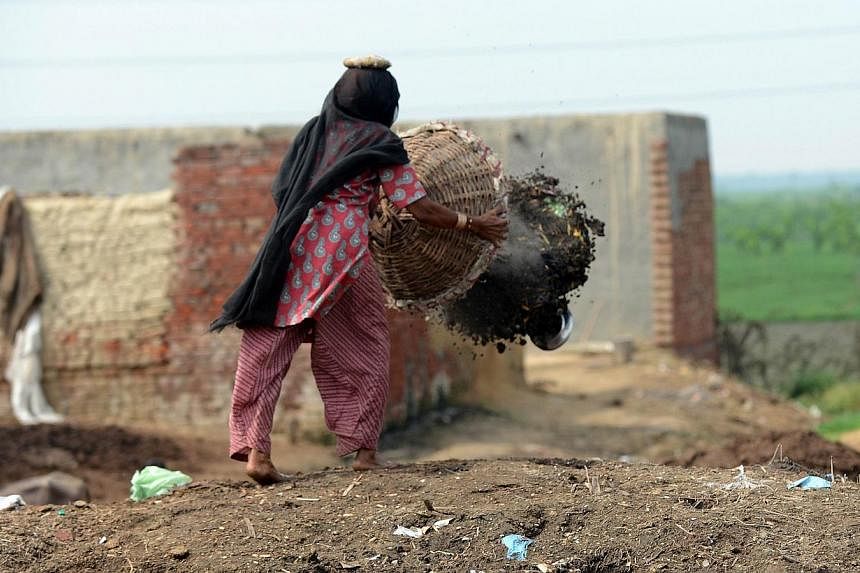NEKPUR, India (AFP) - For nearly four decades, Kela Devi worked for a pittance emptying her high-caste neighbours' toilets with her bare hands in the small Indian village where she lives.
But in the last two years she has turned her life around, learning to read and write and opening her first bank account.
Devi is among 21 women in the village of Nekpur who managed to escape their desperate situation with the help of the charity Sulabh International, which provided shelter and a basic education.
The organisation stepped in two years ago, when India's government banned the building of non-flushing toilets that must be emptied by hand in an attempt to end the practice known as manual scavenging.
Sulabh International has built new toilets for the community and established a centre called Nai Disha, or New Direction, where the women learn vocational skills such as sewing and making detergents and other disinfectants.
Devi, who is in her mid-60s, was one of the oldest and is the mother of three sons and four daughters.
"These women used to get food, clothes and a little money for their work," said Suman Chahar of Sulabh International.
"Now, they make over 3,000 rupees (S$63) each month, and they have their dignity."




